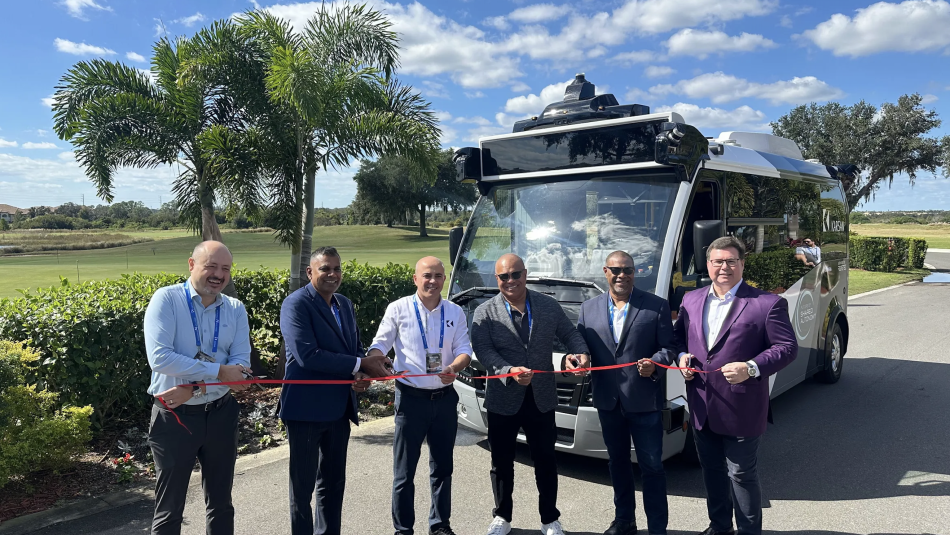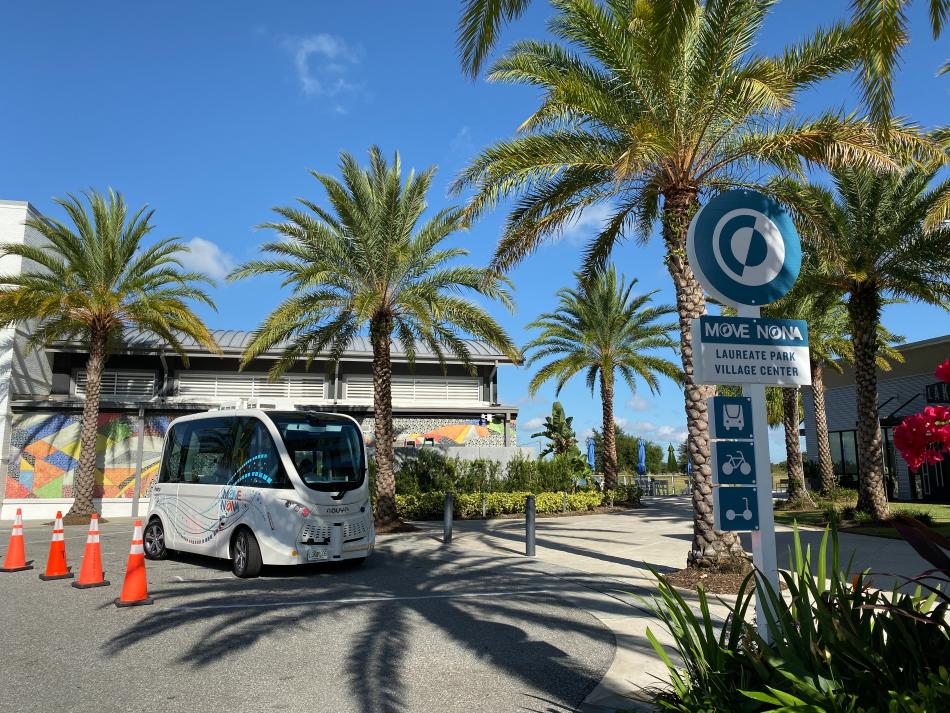First came Waymo robotaxis. Now, minibuses with no human drivers are set to be whirring around Atlanta soon.
Beep, an Orlando-based electric minibus builder, unveiled new models and announced today its services will launch in Orlando and Atlanta markets next year as a means of boosting regional, multimodal connectivity.
In the latter case, the EV shuttles will also help move expected crowds around Atlanta for the 2026 FIFA World Cup downtown, per Beep.
Intown Atlanta and Orlando suburb Altamonte Spring will see “production-grade, state-of-the-art” Karsan Autonomous e-JEST vehicles deployed. According to Beep officials, the not-exactly-tiny minibuses have been thoroughly safety-tested in challenging weather and mixed traffic. Live demonstrations are ongoing this week at the Florida Autonomous Vehicle Summit in Orlando.
 Example of the Karsan Autonomous e-JEST vehicles bound for Atlanta, recently unveiled in Florida. Beep
Example of the Karsan Autonomous e-JEST vehicles bound for Atlanta, recently unveiled in Florida. Beep
Bus-News has a closer look at the new models, inside and out, over here. They’re designed to carry up to 17 passengers (12 fixed seats, plus a wheelchair area) through narrower urban street, that publication reported last month.
More than 1,000 of the vehicles are currently operating in North America, Japan, and Europe, making the product Europe’s leading electric minibus, per Beep.
In Atlanta, Beep’s launch will mark the first fixed shared AV route in the city. No timeline for deployment was specified, other than it being before World Cup festivities kick off in June. The deployment “will showcase Atlanta as a global hub for innovative, people-first transportation” next summer, per Beep’s announcement.
In May, the local pivot toward auto shuttles became public when Beltline leaders requested $1.75 million from the Atlanta-Region Transit Link Authority for a 12-month pilot program that would include four Beep driverless vehicles. The pilot is expected to cost $3 million overall, Beltline officials said at the time.
The recent announcement from Beep doesn’t specify where the autonomous buses will operate. But Beltline leadership has said the test project would provide autonomous service for about two miles in Southwest Atlanta; specifically, the route would link colleges at Atlanta University Center to MARTA’s West End station, and then down to the Beltline at the Lee + White entertainment and office district. (The Beltline segment there is changing its name from the Westside Trail to the Southwest Trail.)
The buses will not travel in the actual Beltline corridor during the pilot phase, project officials have said.
This week Clyde Higgs, Beltline president and CEO, called the first transit pilot of its kind in Atlanta a key step toward building a more accessible and innovative city.
The pilot program brings “the opportunity to learn what works best, identify areas for improvement, and apply those insights to connect Atlanta together,” Higgs noted in Beep’s announcement. “It’s not just about testing new technology—it's about enhancing mobility access and increasing connectivity.”
Dr. Ali Peker, CEO of autonomous driving software provider ADASTEC, added that the minibuses have completed more than 150,000 kilometers of “proven real-world automated operations” on public roads, carrying roughly 60,000 passengers safely to date.
Atlanta Mayor Andre Dickens made waves last year after suggesting in a WABE interview that driverless pods—or bus rapid transit vehicles—could be viable alternatives to Beltline rail, noting the city had hired outside consultants to study transit options and provide a breakdown of costs, including potential fare prices.
Looks like we’ll see … soon.
...
Follow us on social media:
Twitter / Facebook/and now: Instagram
• Beltline news, discussion (Urbanize Atlanta)







